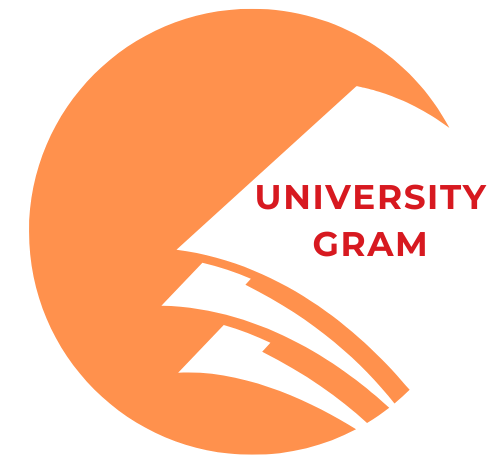Eligibility
Minimum 55% Marks in PG for Gen./OBC and 50% for SC/ST/OBC (Non-Creamy Layer)/ Differently – Abled category candidates as per govt. rules. NET/GATE qualified candidates will be exempted from Common Entrance Test of the University as per UGC norms.
About the Ph. D. Programme for Working Professionals
A Ph.D. program, short for Doctor of Philosophy, is the highest academic degree one can earn in most fields of study. It represents the culmination of years of specialized study and research, typically requiring a significant original contribution to the chosen field. Here are some key aspects to understand about Ph.D. Programme for Working Professionals:
Research Focus & Duration: Ph.D. programs are primarily research-focused, aim to train students to become independent researchers capable of conducting original investigations, advancing knowledge in their chosen field, and contributing to the academic community. Ph.D. programs usually take several years to complete, typically ranging from three to seven years, depending on the field of study, the nature of the research, and individual circumstances.
Coursework & Research Proposal: Ph.D. students typically undertake advanced courses in their field during the initial phase of their studies. These courses provide students with the necessary theoretical background and research methodologies relevant to their area of specialization. A crucial component of a Ph.D. program is the development and execution of an original research project. Students are often required to propose their research topic and outline their intended methodology in a research proposal, which is subject to approval by a faculty committee or supervisor.
Thesis/Dissertation & Advisor/Supervisor: The culmination of a Ph.D. program is the completion and defense of a doctoral dissertation or thesis. This document presents the student’s original research findings, analysis, and conclusions. The dissertation is typically a substantial piece of work that contributes new knowledge to the field. Ph.D. students work closely with a faculty advisor or supervisor who provides guidance and mentorship throughout the program. The advisor helps shape the student’s research direction, provides feedback on their work, and supports their academic and professional development.
Contribution To Knowledge & Career Opportunities: A fundamental aspect of earning a Ph.D. is making a significant contribution to the body of knowledge in one’s field. This contribution could take various forms, such as the development of new theories, methodologies, technologies, or empirical findings that advance understanding in the discipline. The primary aim of a Ph.D. program is to prepare students for careers in academia as professors or researchers, Ph.D. graduates also pursue diverse career paths in industry, government, non-profit organizations, and the private sector.
Overall, a Ph.D. program represents a rigorous and intellectually demanding journey that offers students the opportunity to delve deeply into their chosen field, contribute new knowledge, and become experts in their area of specialization. It is a transformative experience that prepares individuals for leadership roles in academia, industry, and society at large.
Fee Structure
Ph.D
Registration Fees = Rs. 2000 || Programme Fees = Rs. 3,00,000
Admission & Course Work Fee = Rs.50000/-
1st,2nd, 3rd, 4th, 5th Instalment = Rs.50000/- (Each)
Ph.D (Pharmacy)
Registration Fees = Rs. 2000 || Programme Fees = Rs. 3,90,000
Admission & Course Work Fee = Rs.65000/-
1st,2nd, 3rd, 4th, 5th Instalment = Rs.65000/- (Each)
Ph.D. Courses (Subjects)
Ph.D. in Agriculture Science
Ph.D. in Art & Social Science
Ph.D. in Business and Commerce
Ph.D. in Education
Ph.D. in Engineering & Technology
Ph.D. in Journalism and Mass Communication
Ph.D. in Law
Ph.D. in Pharmacy
Ph.D. in Sciences
Stagewise Services of Ph. D.
1st Level (First 1-3 months within 90 days): Entrance Exam – Manage in First Stage
2nd Level (First 1-4 months within 120 days): University Admission & Fee – Program 2-3 Years Fee (As per university)
3rd Level (Next 2-3 months within 150 days): Guide – Appointment of Guide (according to University’s registered list)
4th Level (Next months within 180 days): Topic Selection – According to Research Field (Provided 3/4 topics with briefing – select anyone)
5th Level (Next months within 210 days): Course Work Completion – Classes Attendance, Exams & Pass Out
6th Level (Next 1-2 months within 240 days): Assignments (Preparation & Submission) – Question &Answers (60/80nos.) in 30/40 pages
7th Level (Next 1-2 months within 360 days): Synopsis (Preparation, PPT Presentation & Submission) – Research brief in 25 pages (6,000 words)
8th Level (Next1-2 months within 420 days): RDC Meeting (At university) – Research Approval from University
9th Level (Next 4-6 months within 540 days): Article Writing & Publication – National & International – UGC Approved Research Journal (2 Nos)
10th Level (Next 2-4 months within 660 days): 10th Level Seminar Attendance – Nation & International Conferences (2 Nos)
11th Level (Next 1-2 months within 720 days): Print-Outs (Thesis, Synopsis, Summary, Assignments and Plagiarism Report)
12th Level (Next 1 month within 900 days): Thesis (Preparation, PPT Presentation & Submission) – Research Work of 225 pages (55,000 words)
13th Level (Next 4-6 months within 960 days): Evaluation (by 2/3 External Examiners/Evaluator)
14th Level (Next4-6 months within 1080 Days): Thesis Presentation and ‘Viva-Voce’ (By university) – Research Approval& Completion

